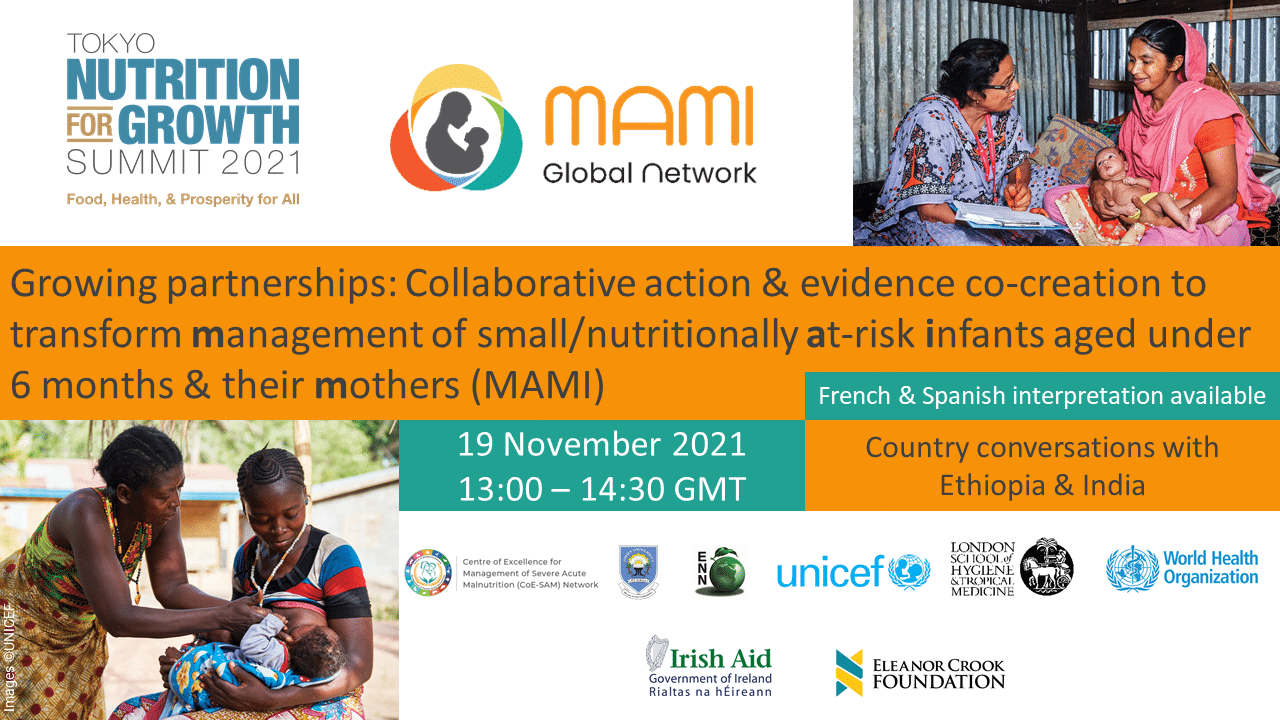

Worldwide, an estimated 21.3 percent of infants under six months (u6m) are wasted, 20.1 percent are underweight, 17.6 percent are stunted, and 17.8 percent are born with a low birth weight. These infants are at higher risk of sickness, death, and poor growth and development. Preventing early-life growth failure is a neglected area of life-course nutrition action that has impeded progress on global targets. Urgent action to transform MAMI care is essential to achieve Sustainable Development Goals 2 and 3.
To help plan and deliver frontline care, the MAMI Global Network developed the MAMI Care Pathway Package, an integrated care pathway approach for adaptation to country needs and services across fragile, conflict-affected, and development contexts. Quality evidence on this approach is urgently needed across multiple settings. Co-creation of evidence with multiple stakeholders and country leadership is critical to ensure evidence is driven by country agendas and plans for scalable and sustainable care within government systems and structures.
Country conversations will showcase experiences from two countries, Ethiopia and India, on utilizing cross-disciplinary and multi-level partnerships to co-create evidence around the management of small and nutritionally at-risk infants under 6 months and their mothers (MAMI) to inform national and international policy and service development.
A brief introduction by the MAMI Global Network co-chairs (ENN and LSHTM) will set the scene. Following country conversations with Ethiopia and India, a plenary session will provide time for questions to the panelists, beginning with a few words from WHO on evidence to policy. A reflection from UNICEF will then describe UNICEF’s strategic plans on MAMI and share our collective asks for MAMI-sensitive N4G commitments.
Speakers/Panellists:
The side-event will be in English with French and Spanish interpretation. Please register using the link below and share widely with your colleagues.